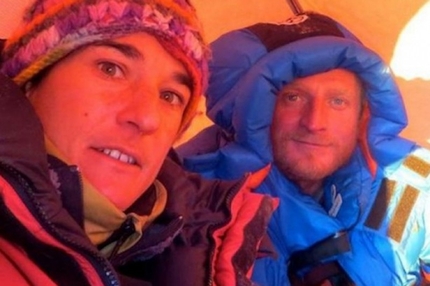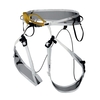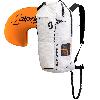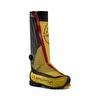The Nanga Parbat rescue

 1 / 7
1 / 7 Denis Urubko
Denis Urubko
It still happens, even nowadays. There are still those who do not hesitate to help others in need. It happens every day, up in our mountains. And sometimes it happens even at the highest of altitudes. I.e. in conditions that are, by definition, impossible. Not just in summer, in the air that doesn’t exist up on the eightthousanders. But also - and this is an absolute novelty - in the impossible Himalayan winter on a mountain as difficult as Nanga Parbat. A rescue in winter and at that altitude is a hugely risky enterprise and, at the same time, a nigh impossible mission. Yet it happened. Because - we like to believe - there are still those who immediately set off to help others, regardless of who they are, and where they are.
We are obviously talking about the recent rescue operation that saved France’s Elisabeth Revol, carried out by Denis Urubko, Adam Bielecki, Jarek Botor and Piotr Tomala. And we are, obviously, also talking about Poland’s Tomek Mackiewicz who remained up on the mountain. A success therefore, with a life saved and the terrible mourning for a life lost. This is what rescuers have to deal with.Because, more than one might think, in cases like these joy goes hand in hand with a painful loss. Rescuers know this all to well. And, nevertheless, they set off… and there’s only one reason why: someone is in danger and needs rescuing.
Denis Urubko certainly knew this, as he had already taken part in another incredible rescue attempt. In 2008 he, together with Don Bowie, supported Ueli Steck and Simon Anthamatten on the South of the Annapurna in an attempt to rescue Span’s Iñaki Ochoa de Olza. At the time Urubko leapt out of helicopter that couldn’t land due to the bad weather, reached Base Camp and then continued up the mountain to reach Ueli and Simon. In the end they failed to save Iñaki, struck with altitude sickness. But they certainly provided a fundamental role in rescuing Horia Colibasanu, Iñaki’s climbing partner who, right to the bitter end, had tried to help him in that tent at 7400m.
Now, up on Nanga Parbat, Urubko has done it again with Adam Bielecki, Jarek Botor and Piotr Tomala with whom he’d been attempting the first winter ascent of nearby K2. He did it again it with the helicopter pilot who took them to an altitude of almost 5000 meters and then, when the rescue ended, who evacuated them off the mountain. And he did it again with the entire Polish K2 team and also with all those who participated in the rescue operation. Climbing 1200 vertical meters, in winter, at that altitude, on Nanga Parbat and in just one night, is an undertaking that defies definition. As do the risks that Urubko and Bielecki took on themselves. There’s no point underling the fact that Urubko is a legend in Himalayan mountaineering and that Bielecki (who, for example, has the first winter ascent of Gasherbrum I to his name) is one of the strongest high altitude mountaineers in the world. If they consciously chose to attempt the rescue it’s for an “other” reason. And this "other" is what makes all rescues, and all rescuers, great.



 Copia link
Copia link

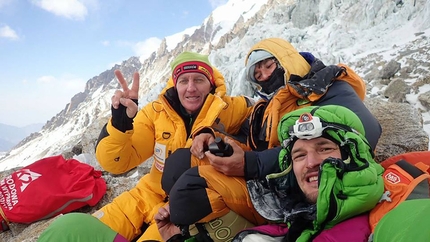



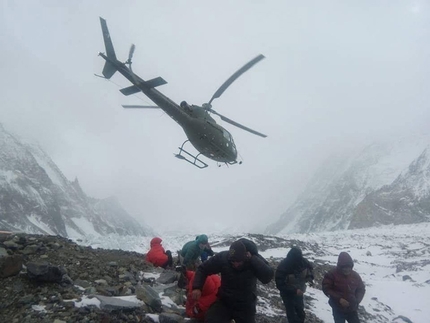

 See all photos
See all photos